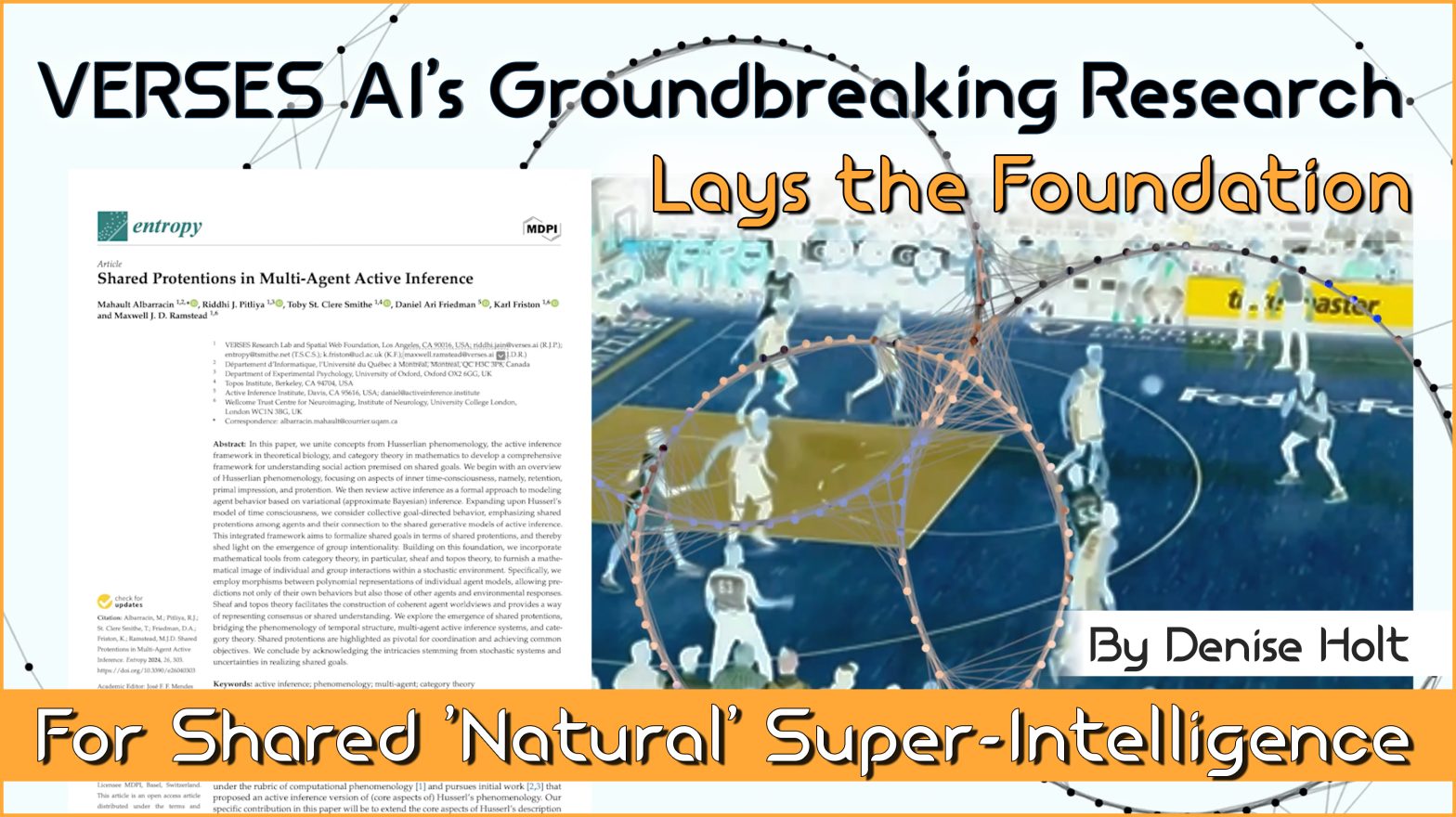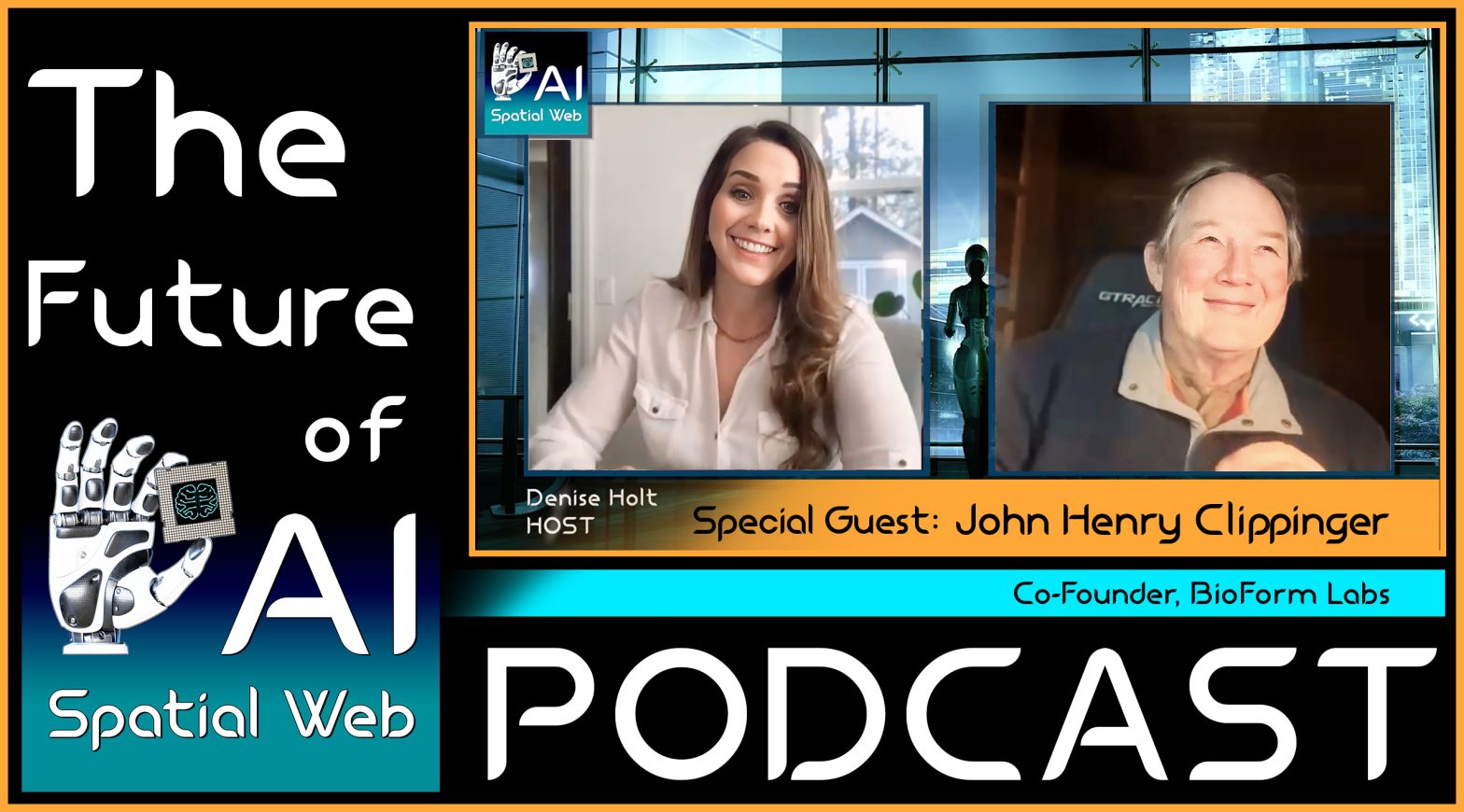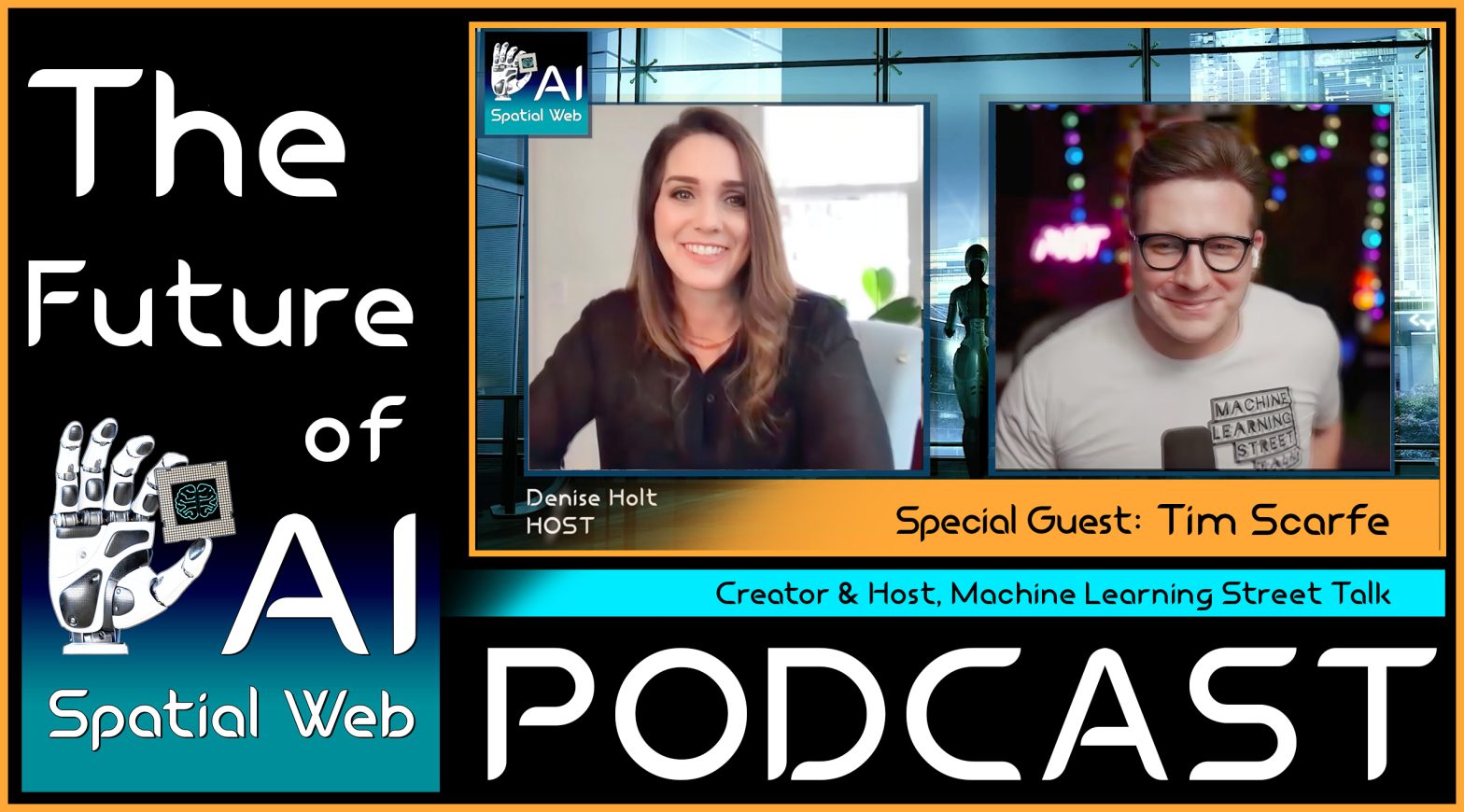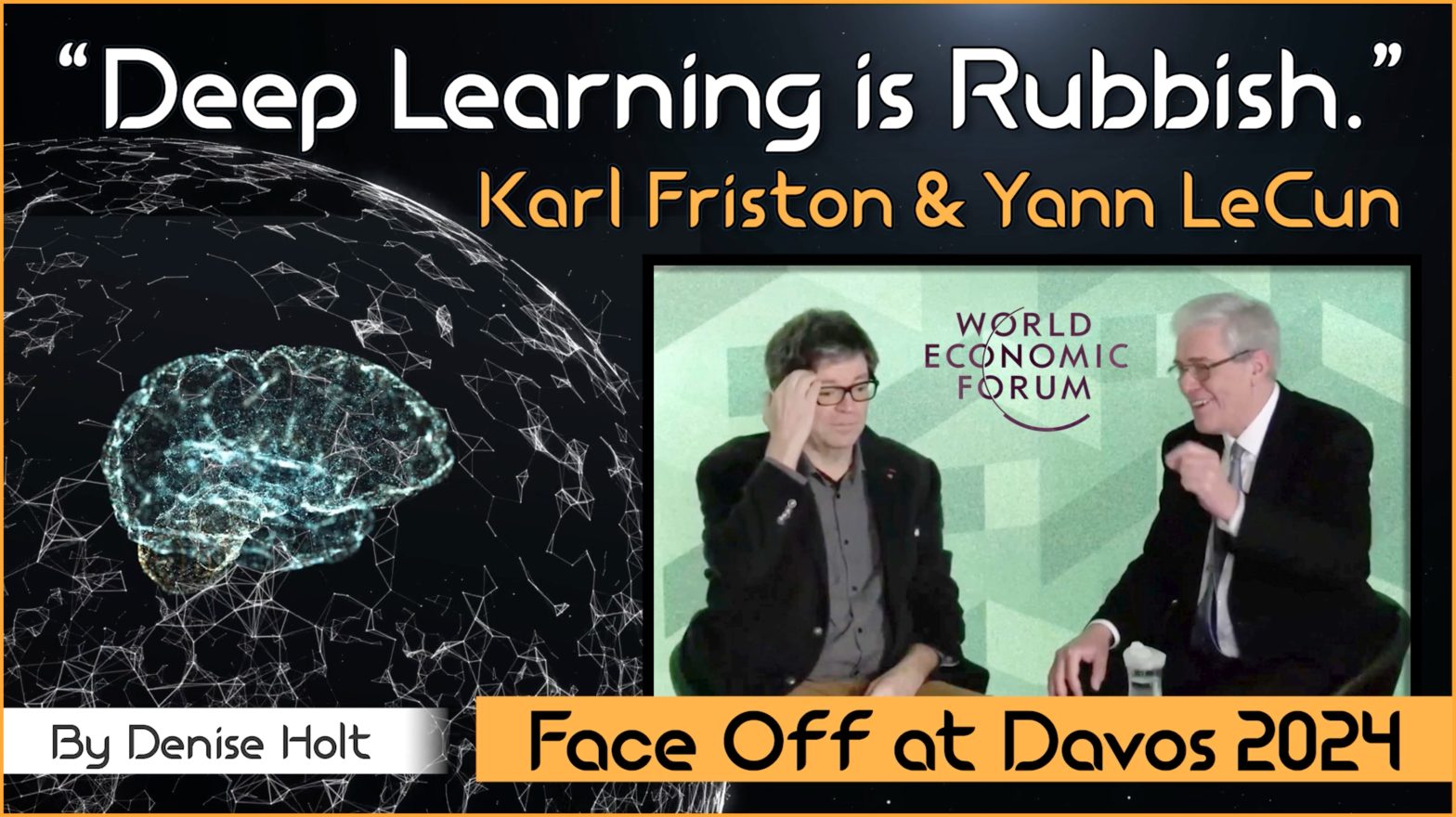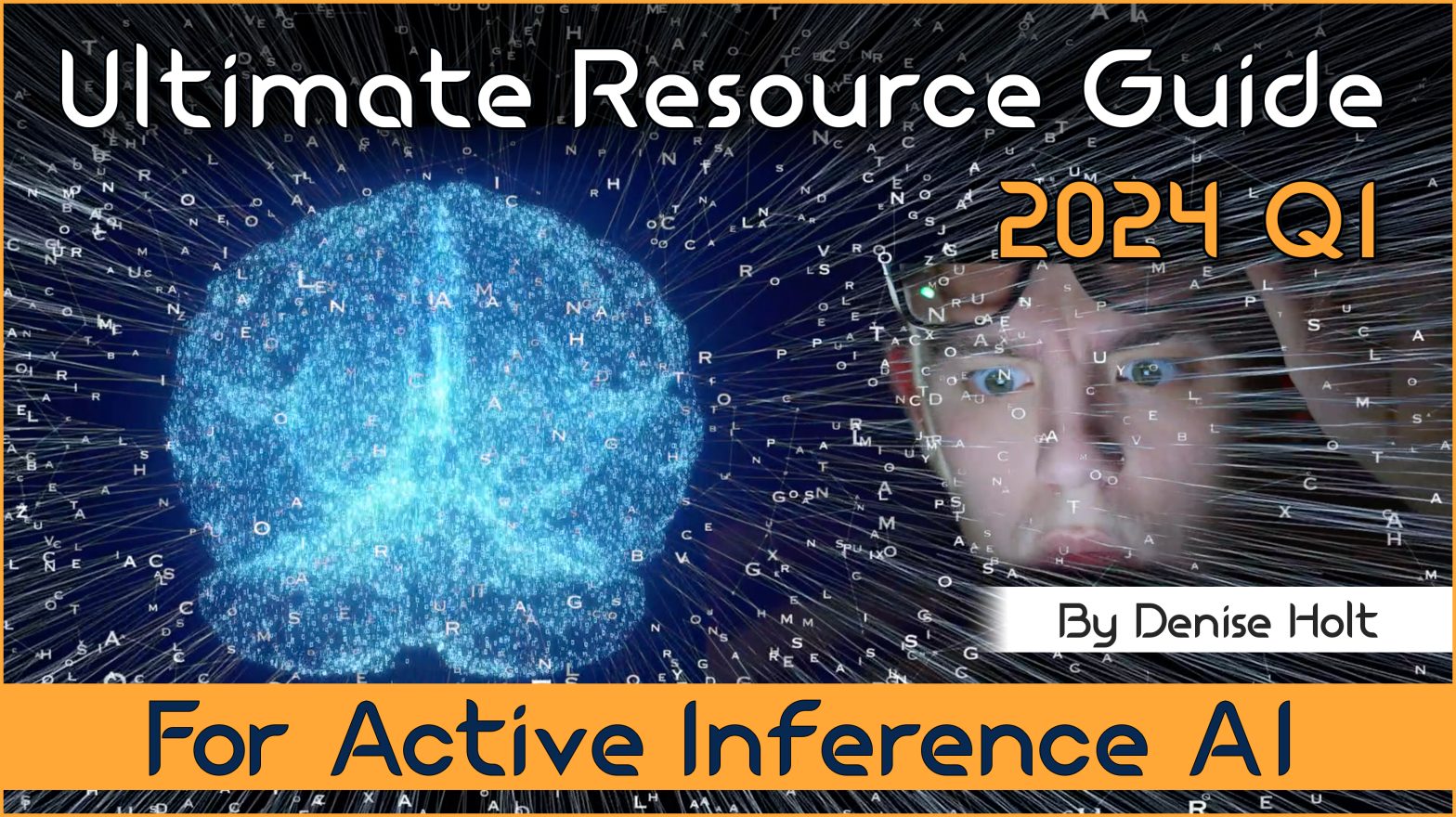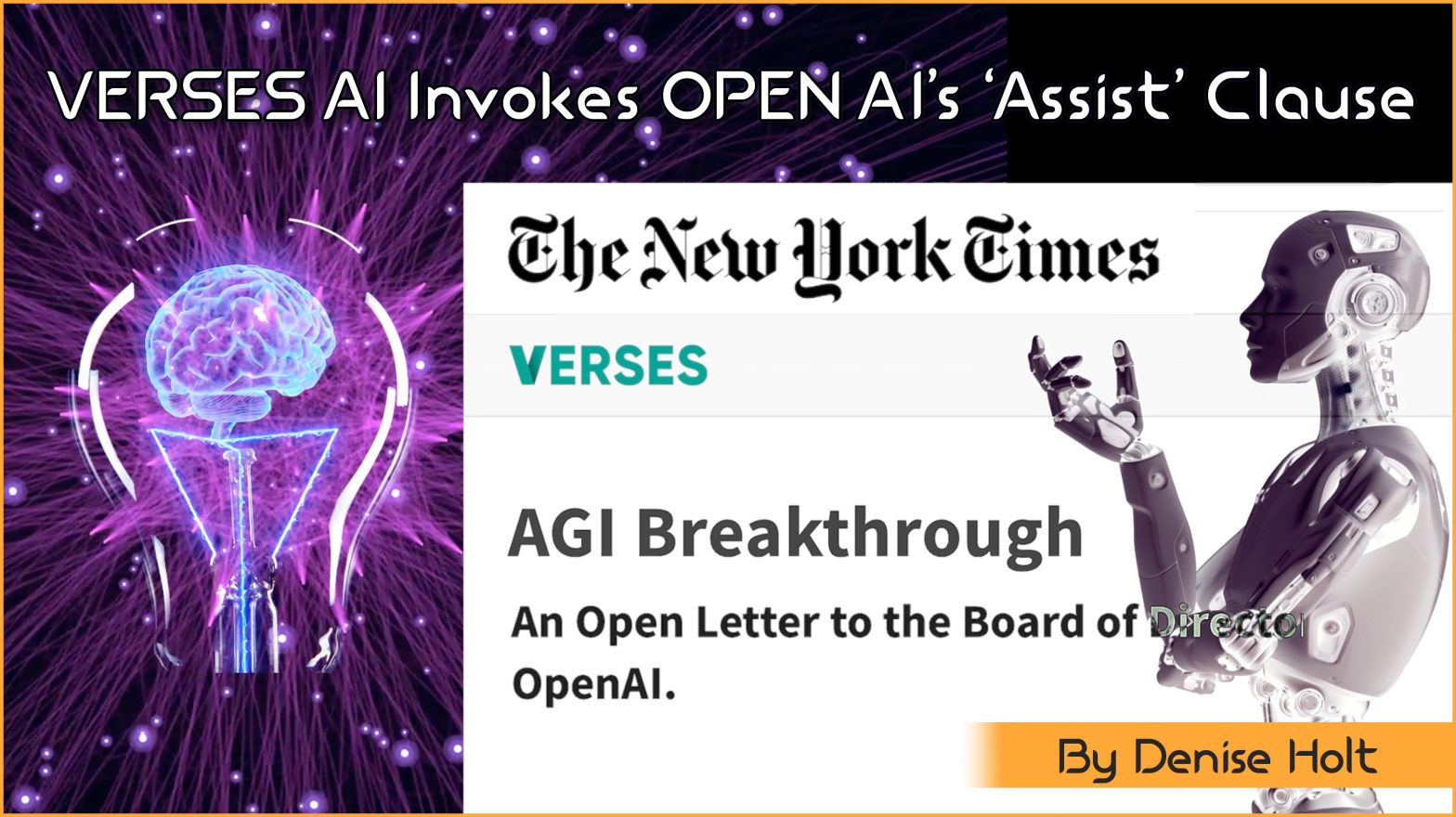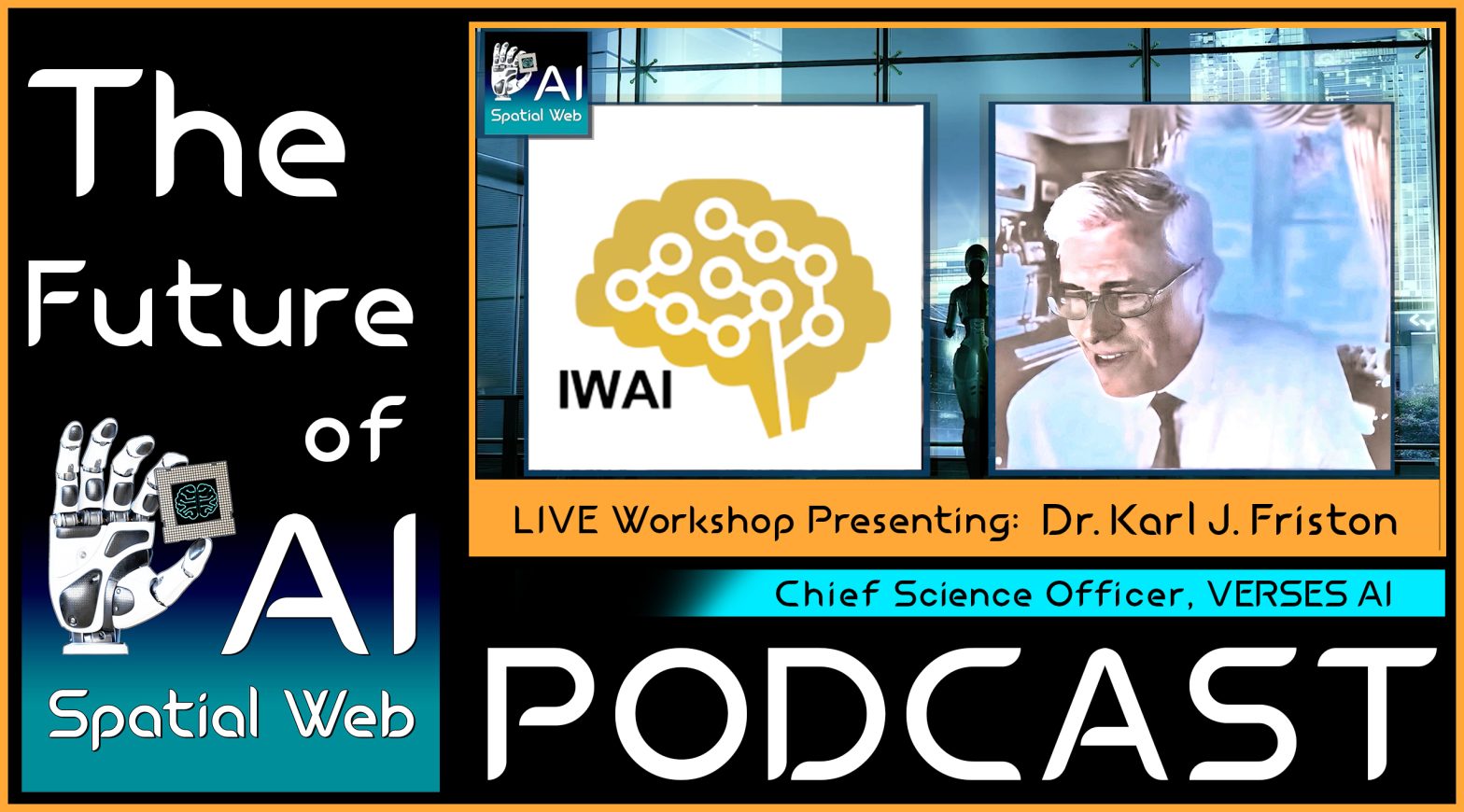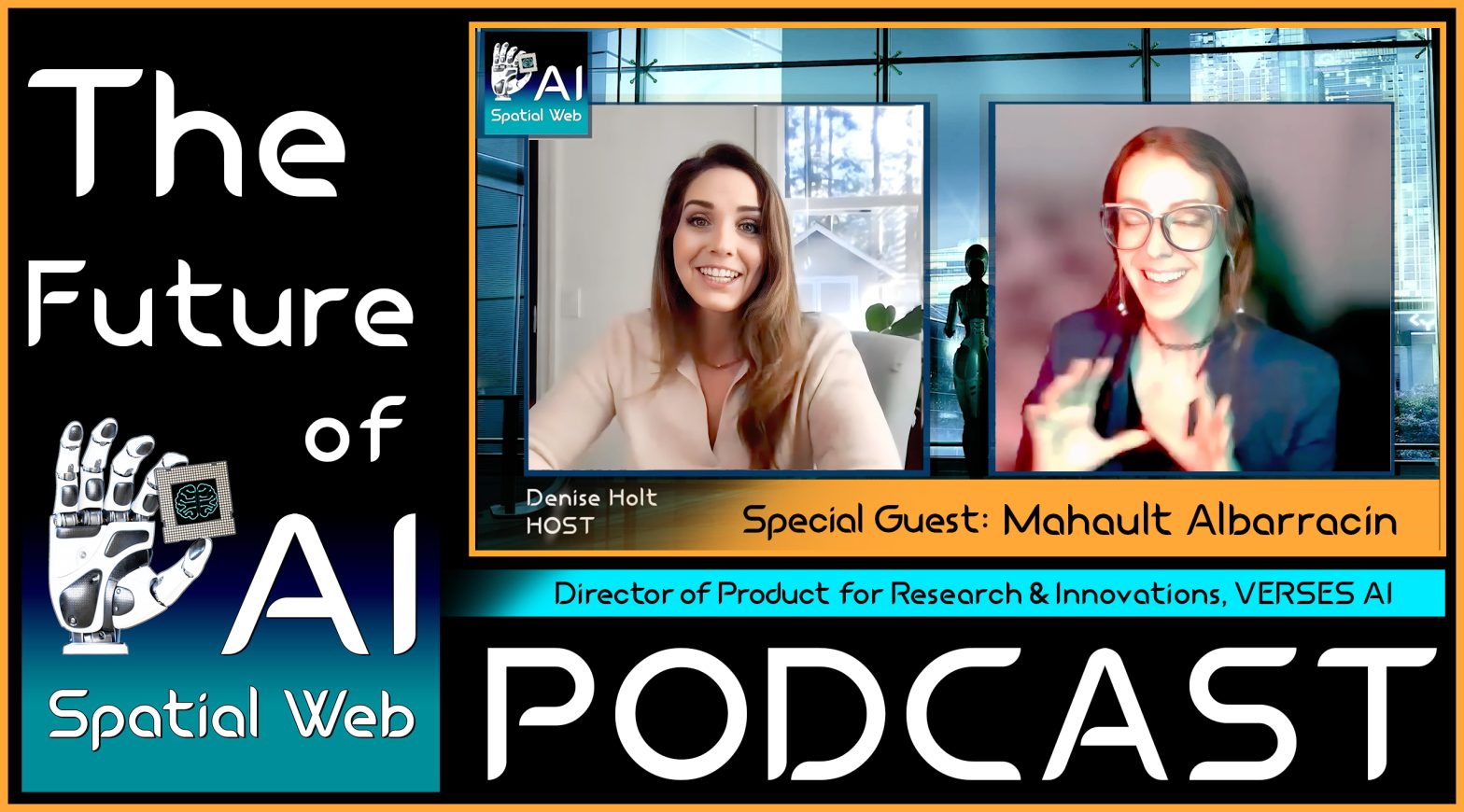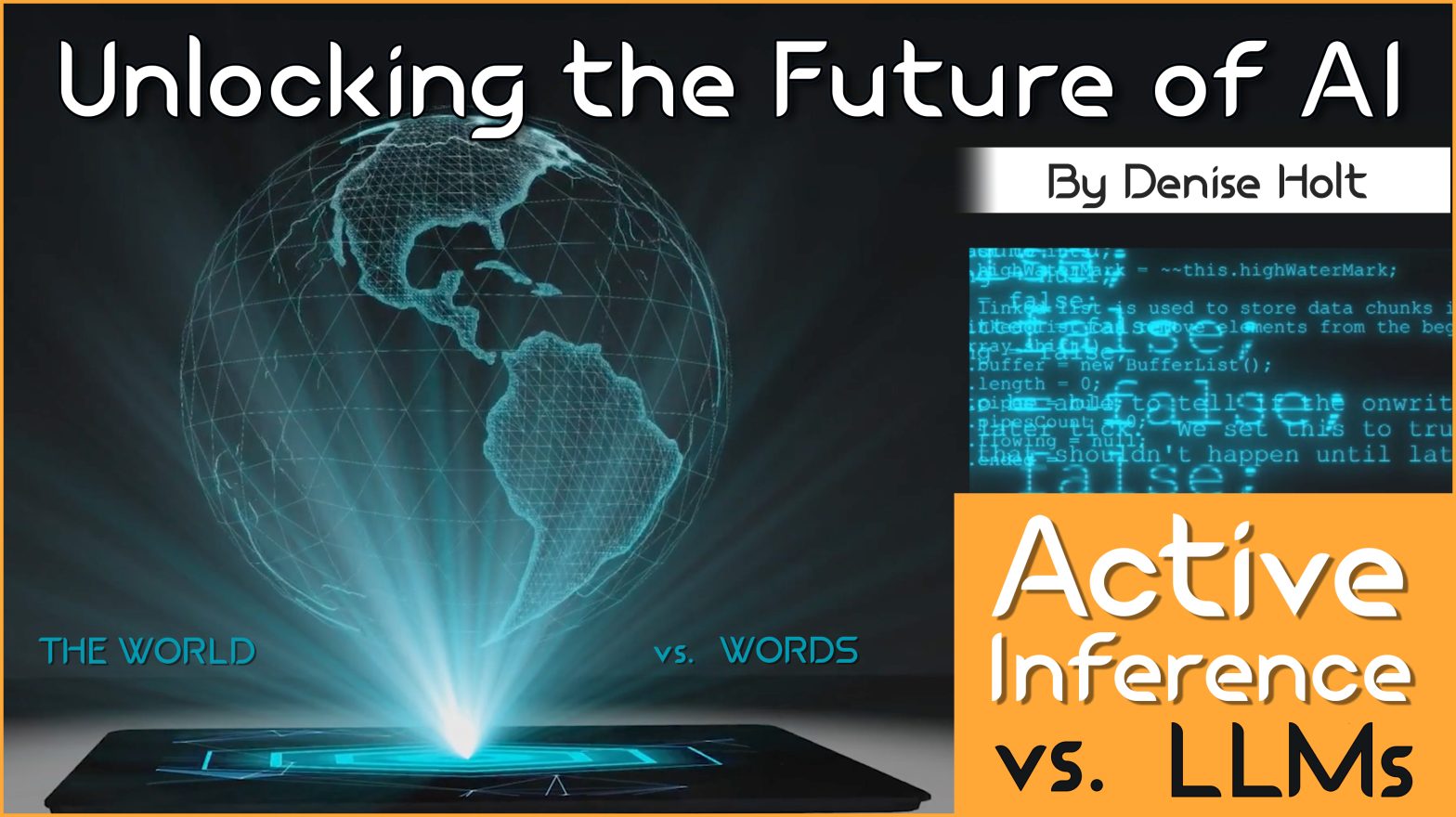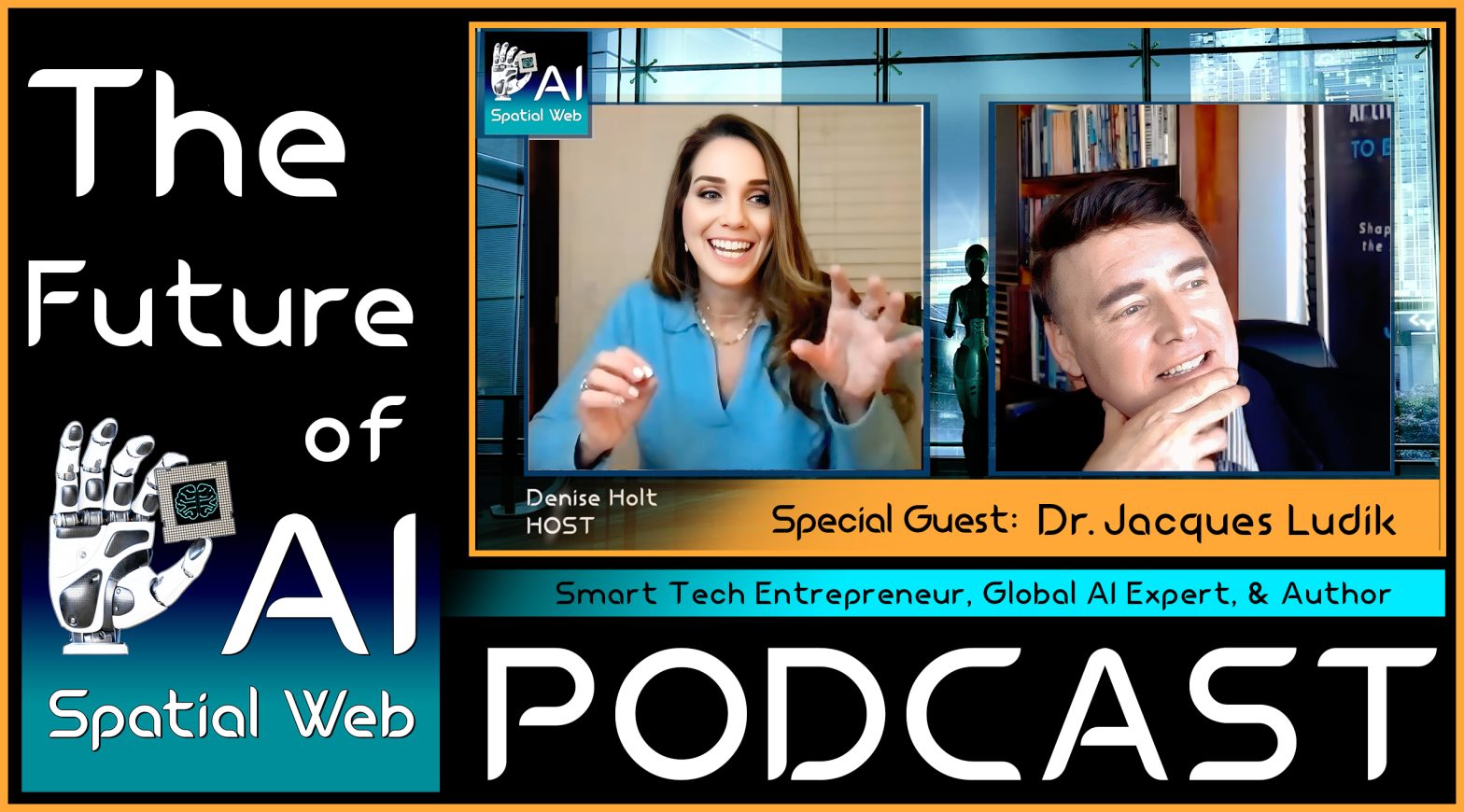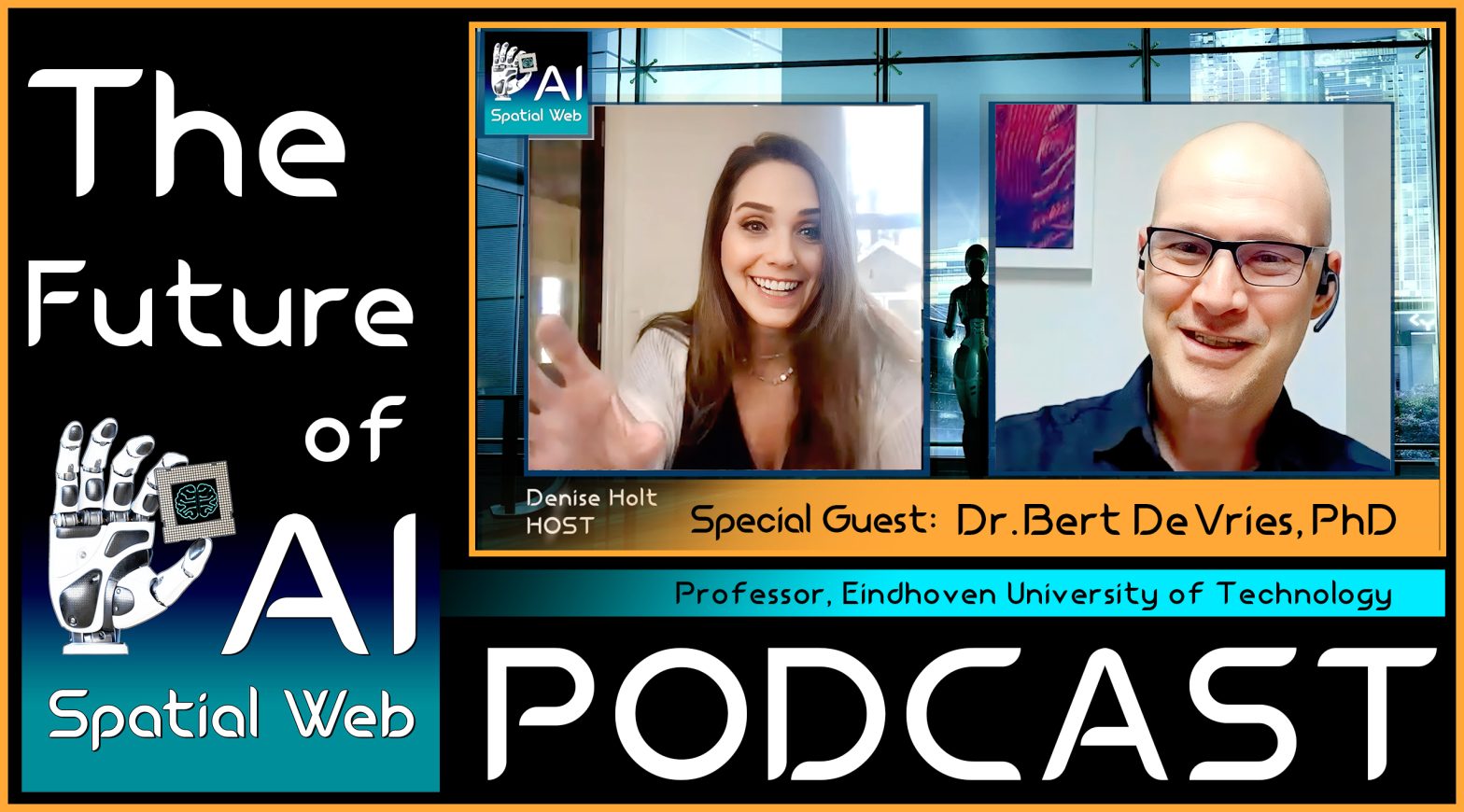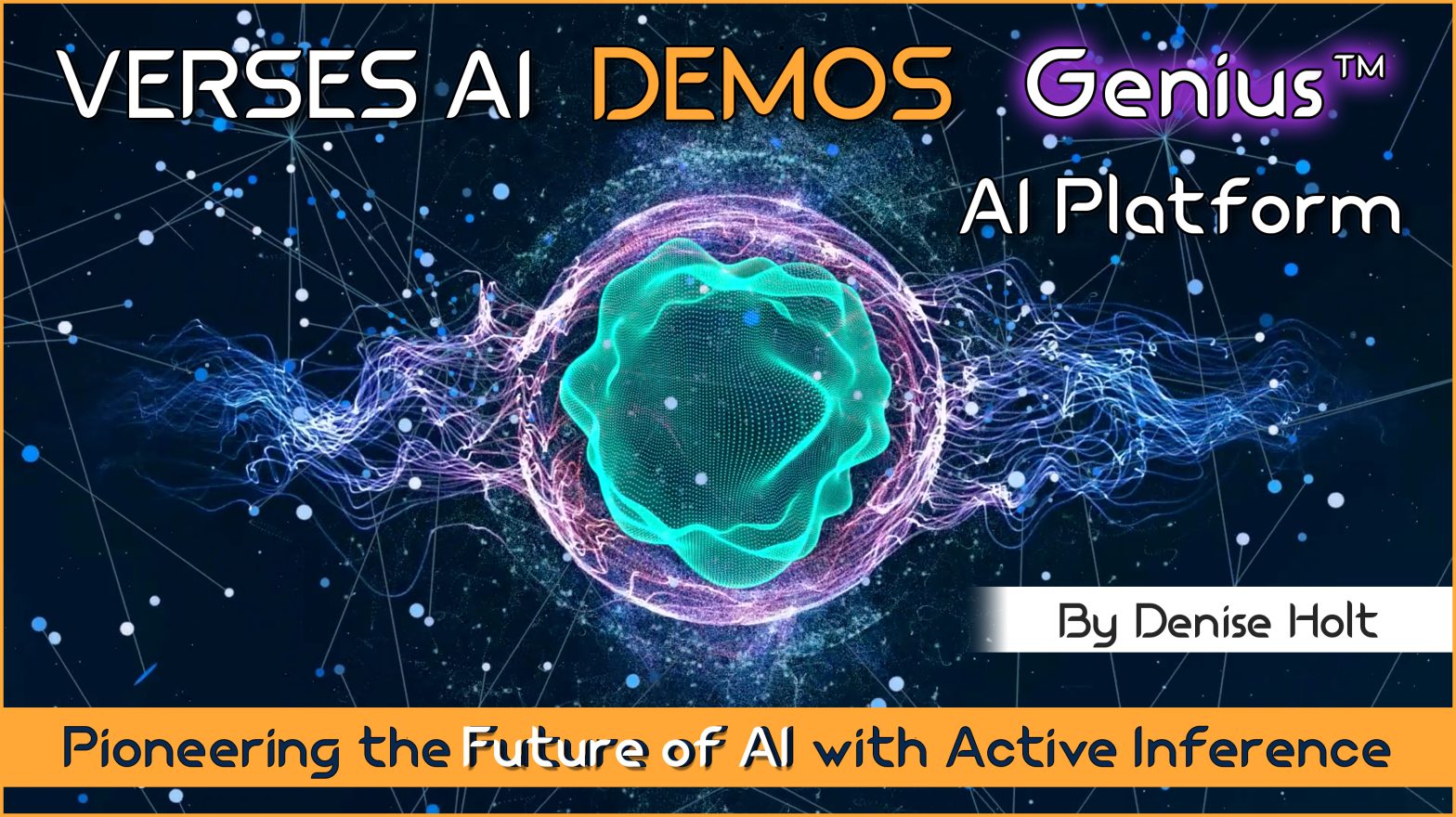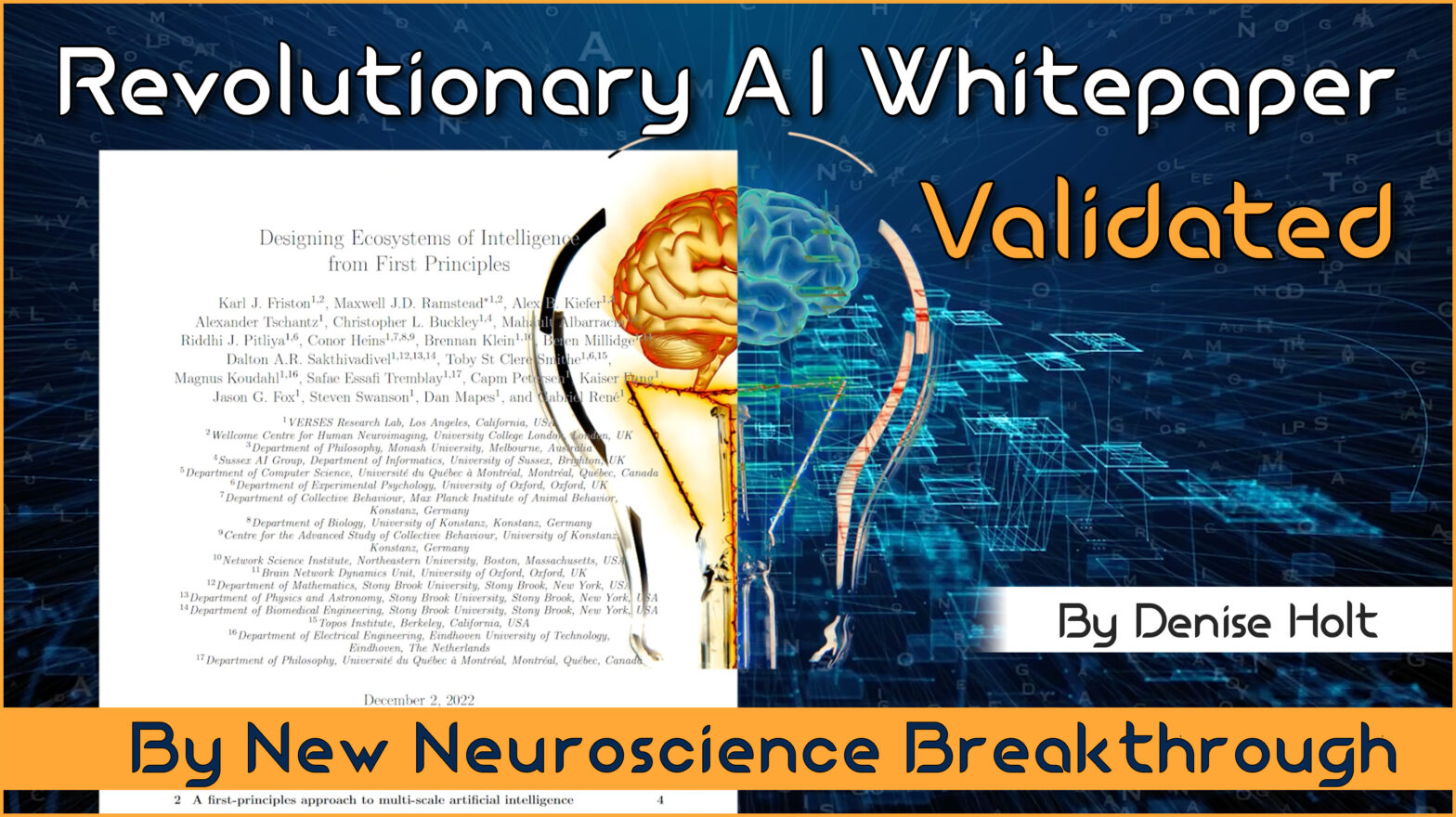VERSES AI has unveiled a groundbreaking framework that “sets the stage” for ASI, and could have profound implications for the future of AI and human-machine cooperation.
Author: Denise Holt
The Shift Toward Natural AI: Dr. John Henry Clippinger on Active Inference & the Future of AI
Spatial Web AI interviews Dr. John Henry Clippinger, on the shift away from Deep Learning toward a natural approach to AI based on Active Inference.
Tim Scarfe of Machine Learning Street Talk on Agency and the Future of AI
Join Spatial Web AI host Denise Holt, and Tim Scarfe, creator, and host of Machine Learning Street Talk Podcast, for a mind-bending discussion on AI and the evolution of technology. In this episode…
“Deep Learning is Rubbish” — Karl Friston & Yann LeCun Face Off at Davos 2024 World Economic Forum
In a panel hosted by the Financial Times at the World Economic Forum in Davos, Switzerland, two of the biggest names in artificial intelligence — Dr. Karl Friston of VERSES AI, and Dr. Yann LeCun of Meta — discussed their aligned, yet contrasting visions for the future of AI, with Friston proclaiming, “Deep Learning is Rubbish,” with Yann LeCun asserting, “The future of AI is non-generative.”
The Ultimate Resource Guide for Active Inference AI | 2024 Q1
The Most Complete Repository of Research Links and Educational Content on the VERSES AI Technology & Active Inference AI
This group of leaders came together to to discuss a letter signed by 25 neuroscientists, biologists, physicists, policy makers, AI researchers, entrepreneurs, and directors of research labs on a joint initiative proposing a radical rethinking of AI’s trajectory, advocating for a model of AI that is fundamentally different from the data-intensive, computationally expensive systems that dominate today’s landscape.
Their meeting signifies growing momentum behind a new approach to AI called Active Inference, developed by world renowned neuroscientist, Dr. Karl Friston, Chief Science Officer at VERSES AI, that leads to more transparent, ethical and beneficial intelligent systems.
Hello 2024 — The Year Computing Changes Forever
Computing is changing on every basic and fundamental level. Generative AI is one piece of that computing puzzle. It’s a massive tool in this next era, but it’s not the framework for the computing, itself. What VERSES is building IS that framework.
Turning Point in AI - Leaders Rally for a Natural AI Initiative
A pivotal roundtable discussion held by the Boston Global Forum, the Active Inference Institute, and the Neuropsychiatry and Society Program on December 12, 2023, marked a significant turning point in our understanding and development of artificial intelligence.
This group of leaders came together to to discuss a letter signed by 25 neuroscientists, biologists, physicists, policy makers, AI researchers, entrepreneurs, and directors of research labs on a joint initiative proposing a radical rethinking of AI’s trajectory, advocating for a model of AI that is fundamentally different from the data-intensive, computationally expensive systems that dominate today’s landscape.
Their meeting signifies growing momentum behind a new approach to AI called Active Inference, developed by world renowned neuroscientist, Dr. Karl Friston, Chief Science Officer at VERSES AI, that leads to more transparent, ethical and beneficial intelligent systems.
VERSES AI Announces AGI Breakthrough: Invokes Open AI’s ‘Assist’ Clause
In an unprecedented move by VERSES AI, today’s announcement of a breakthrough revealing a new path to AGI based on ‘natural’ rather than ‘artificial’ intelligence, VERSES took out a full page ad in the NY Times with an open letter to the Board of Open AI appealing to their stated mission “to build artificial general intelligence (AGI) that is safe and benefits all of humanity.”
Exclusive: Dr. Karl Friston Unveils Cutting-Edge Active Inference AI Research at IWAI
Denise Holt, reporting LIVE from IWAI 2023. In this groundbreaking video, Dr. Friston unveils his latest research on Active Inference, shedding light on its potential as a systematic blueprint for Artificial General Intelligence (AGI). Watch as Friston and his VERSES team pioneer a new kind of AI that mimics biological intelligence, making any data ‘smart’.
Beyond LLMs: Mahault Albarracin on How Active Inference Gives AI a Sense of Self in the World
On November 20,2023, host Denise Holt was joined by Mahault Albarracin, Director of Product for Research and Innovations at VERSES AI, in a recent episode of the Spatial Web AI Podcast for a deep dive into the intricacies of Active Inference AI and its implications for the future of artificial intelligence.
Unlocking the Future of AI: Active Inference vs. LLMs – The World vs. Words
In a world where AI reigns supreme, there is a question looming among the tech elite: Are we on the cusp of true intelligence, or are we merely toying with sophisticated text generators? As we marvel at the prowess of Large Language Models (LLMs) like ChatGPT, Claude, and others, it’s time to investigate a bit further and seek answers. Beyond the hype and fascination, lies a catalyst for change and remarkable innovation, fundamentally redefining what AI means: Active Inference AI.
Navigating the AI Revolution with Dr. Jacques Ludik: Insights on Active Inference, Ethics,and AI’s Societal Impact
Join our conversation in this episode of the Spatial Web AI Podcast, where host Denise Holt engages with Dr. Jacques Ludik, a renowned global AI expert, smart tech entrepreneur, founder of multiple AI companies, and best-selling author, as they dive into a myriad of topics encompassing AI’s future, its ethical implications, and its transformative impact on society. Explore the intricacies of neural networks and Active Inference AI, discussing the broader societal implications of AI, including its role in empathy, privacy, and AI governance.
Special Guest: Professor Bert De Vries | Active Inference & First Principles AI
Explore the fascinating world of Active Inference AI and the Free Energy Principle developed by Dr. Karl Friston in this episode of the Spatial Web AI Podcast, as host, Denise Holt, welcomes Dr. Bert De Vries, Professor at Eindhoven University of Technology. #ActiveInference
Discover how the Active Inference approach to AI follows the principle of least action and describes how information processing occurs in biological systems like the brain.
VERSES AI Demos ‘Genius™’ AI Platform: Pioneering the Future of AI with Active Inference
“What you’re about to see is akin to, I believe, a moment like the launch of the first rocket or the Kitty Hawk moment…So I want you to think about that moment when you first saw something completely new in technology.”
– Gabriel Rene, CEO VERSES AI
…Artificial intelligence is at a critical juncture in its evolution, and today’s LIVE demonstration of VERSES AI’s “Genius™” AI platform showcases a promising new direction for the field. In this presentation, CEO Gabriel Rene and his team provided a first look at how Genius™ is redefining the future of AI through its innovative approach rooted in Active Inference, First Principles AI, and Shared Intelligence.
Revolutionary AI Whitepaper Validated by New Neuroscience Breakthrough
In December 2022, VERSES AI set forth a sweeping vision for artificial intelligence based on a distributed, collective real-time knowledge graph, comprised of Intelligent Agents operating on the physics of intelligence itself. In their whitepaper, titled “Designing Ecosystems of Intelligence from First Principles,” they propose a profound departure from standard notions of AI as a monolithic system. This groundbreaking new artificial intelligence paradigm is gaining momentum, thanks to a major discovery proving its underlying scientific theory – the Free Energy Principle (FEP) by the world’s most cited neuroscientist, Dr. Karl J. Friston.

